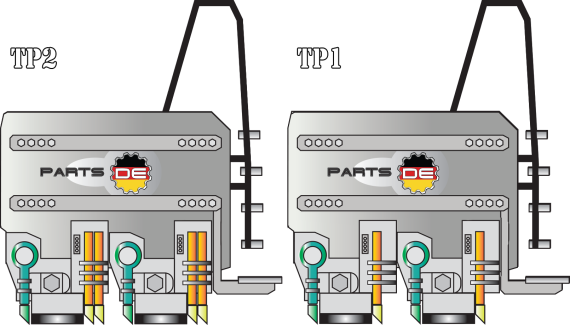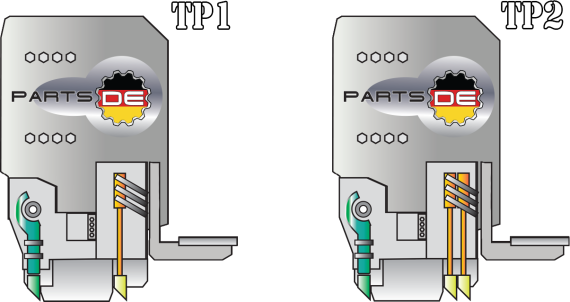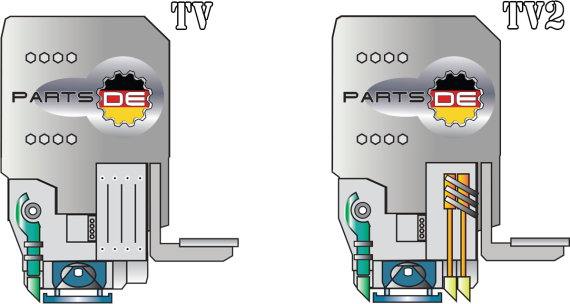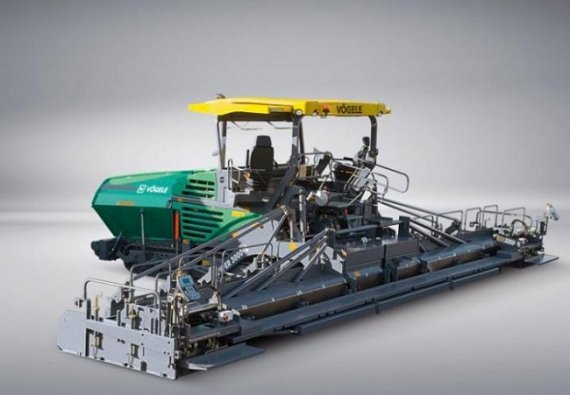
Screed for Vögele asphalt pavers

Vögele screeds
The screed is a crucial component of an asphalt paver, serving multiple important functions. It creates a uniform, closed surface structure, ensures quality pre-compaction, and allows for pavement profiling to meet customer specifications. There are two primary types of screeds: Extending and Fixed-width screeds. Extending screeds are ideal for paving sections with variable widths between 1.1m and 10m due to their extreme flexibility. Fixed-width screeds can be used for widths from 2.5m to 16m with special extensions. These extensions provide even surfaces with precise base profiles and can be mechanically installed without leaving any marks on the asphalt. Non-sliding screeds are typically used for long sections with uniform, large widths and curve radii.
Specifications for the sliding screeds
VÖGELE extending screeds are renowned for their exceptional flexibility, making them a perfect choice for paving jobs with variable widths and on curvy roads. They offer a broad range of applications, handling widths between 0.5 m and 9.5 m, and can be equipped with diverse compacting systems, ranging from the basic screed version with vibration (V) to the high-performance screeds with a tamper (T) and dual pressure bars (P2).
These are the specifications for the extending Vogele asphalt pavers screeds:
|
Vögele Screed model |
Maximum paving Width |
Minimum paving Width |
Compaction options | |
|---|---|---|---|---|
|
#1 |
Vögele AB 200 |
3,2 m |
0,5 m |
V, TV |
|
#2 |
Vögele AB 220 |
3,5 m |
0,5 m
|
V, TV |
|
#3 |
Vögele AB 340 |
5 m |
0,75 m |
V, TV |
|
#4 |
Vögele AB 480 |
6,3 m |
2,55 m |
TV |
|
#5 |
Vögele AB 500 |
8,5 m |
2,55 m |
TV, TP1, TP2, TP2 Plus |
|
#6 |
Vögele AB 600 |
9,5 m |
3 m |
TV, TP1, TP2, TP2 Plus |
Specifications for the fixed screeds
VÖGELE fixed-width screeds excel in large pavement projects where precise and level surfaces are required, spanning widths of up to 18 m. They are particularly well-suited for projects that demand high compaction, such as Roller Compacted Concrete (RCC) or Paver Compacted Concrete (PCC) and water-bound base course mixes. The screeds offer great flexibility with 1.25 m hydraulic bolt-on extensions, allowing for variable pave width within a range of 2.5 m. The screed plates, tamper bars, and pressure bar(s) are uniformly heated to achieve a homogeneous surface structure. With electric heating and intelligent generator management, the screed can quickly reach its operating temperature, even at minimum rpm.
These are the specifications for the fixed Vogele asphalt pavers screeds:
|
|
Vögele Screed model |
Maximum paving Width |
Minimum paving Width |
Compaction options |
|---|---|---|---|---|
|
#1 |
Vögele SB 300 |
16 m |
3 m |
TV, TP1, TP2 |
|
#2 |
Vögele SB 300 HD |
12 m |
3 m
|
TV |
|
#3 |
Vögele SB 350 |
18 m |
3,5 m |
TV, TP1, TP2 |
Comparing
Vögele's Extending Screeds and Fixed-Width Screeds offer distinct advantages for different paving applications. Extending Screeds are highly adaptable, ideal for paving in varying widths and on winding roads, and can handle widths from 0.5 m to 10 m with extreme flexibility in frequently changing paving widths. On the other hand, Fixed-Width Screeds are suitable for paving large widths up to 18 m, true to line and level, and offer high compaction of materials such as RCC or PCC. They have infinitely variable pave width within a range of 2.5 m, and screed plates, tamper bars, and pressure bars are uniformly heated for a homogeneous surface structure.
The advantages of Extending Screeds are their adaptability and flexibility, while the disadvantages are that they may not be suitable for large paving widths and high compaction materials. The advantages of Fixed-Width Screeds are their ability to handle large widths and high compaction materials, but their disadvantage is the limited range of pave width adjustment. Ultimately, the choice between these two screed types depends on the specific needs of the paving project.
|
Extending Screeds
|
VS | Fixed-Width Screeds |
|---|---|---|
|
0.5 m |
Minimum pave width | 3m |
|
9.75m |
Maximum pave width | 18m |
|
+ |
Transportability | - |
|
+- |
Paving compaction degree | + |
|
- |
Large paving widths seamless | + |
|
+ |
Application versatility | - |
How does a paver screed work
The front walls move the material forward in front of the screed, while the tamping bar at the front guides the mixture under the screed body, ensuring an initial degree of compaction. The screed plates create a uniform pavement structure.
On VÖGELE compactors, pressure bars controlled by pulses of hydraulic oil pressure complete the paving process. Telescopic tubes, guide rails, sliders and stops prevent the extending screed from twisting. Rod heaters on all compacting units prevent the asphalt from sticking and ensure a perfectly closed surface.
These components ensure a perfect paving result, with a high degree of pre-compaction, thus reducing the number of passes made by the roller.
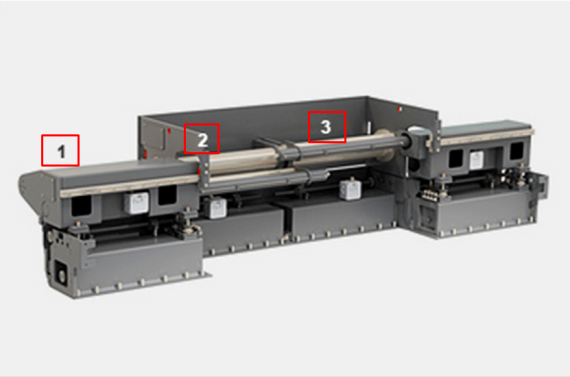
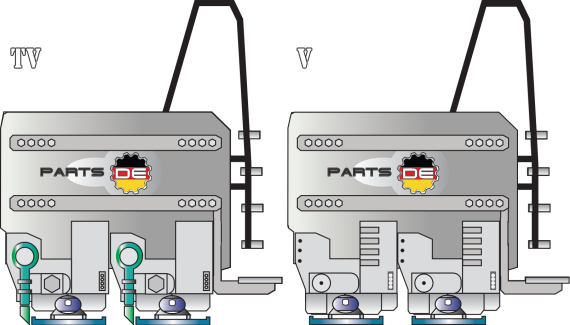
Compaction types
VÖGELE's compacting systems aim to achieve high pre-compaction levels, reducing the amount of final compaction required for different layer thicknesses. The systems include the Tamper (T) with vertical reciprocating motion initiated by an eccentric drive shaft, Vibrators (V) generating vibrations perpendicular to the direction of motion, and Pressure bars (P) hydraulically pressing material at up to 130 bar and a frequency of around 68 Hz. The systems come in P1 (one pressure bar), P2 (two pressure bars), and Plus (two pressure bars with modified tamper geometry and additional weights) versions.
In the realm of conventional mixes that are easier to compact, V and TV screeds prove to be versatile options. However, for reduced final compaction effort, TP1 and TP2 screeds are recommended. Although both variants can handle all conventional mixes, they differ in their achievable compaction values. In particular, the TP2 variant offers greater pre-compaction capabilities, especially for thicker layers.
For paving with conventional mixes or PCC (Paver Compacted Concrete), the TVP2 screed is an ideal choice, as surfaces produced using this method require no final compaction. In addition, the TP2 Plus variant offers even higher compaction values, making it the preferred option for producing the binder course in the VÖGELE InLine Pave train. All VÖGELE screed compacting systems, including tampers, vibrators and pressure bars, are independently controlled and can be activated or deactivated as needed.
